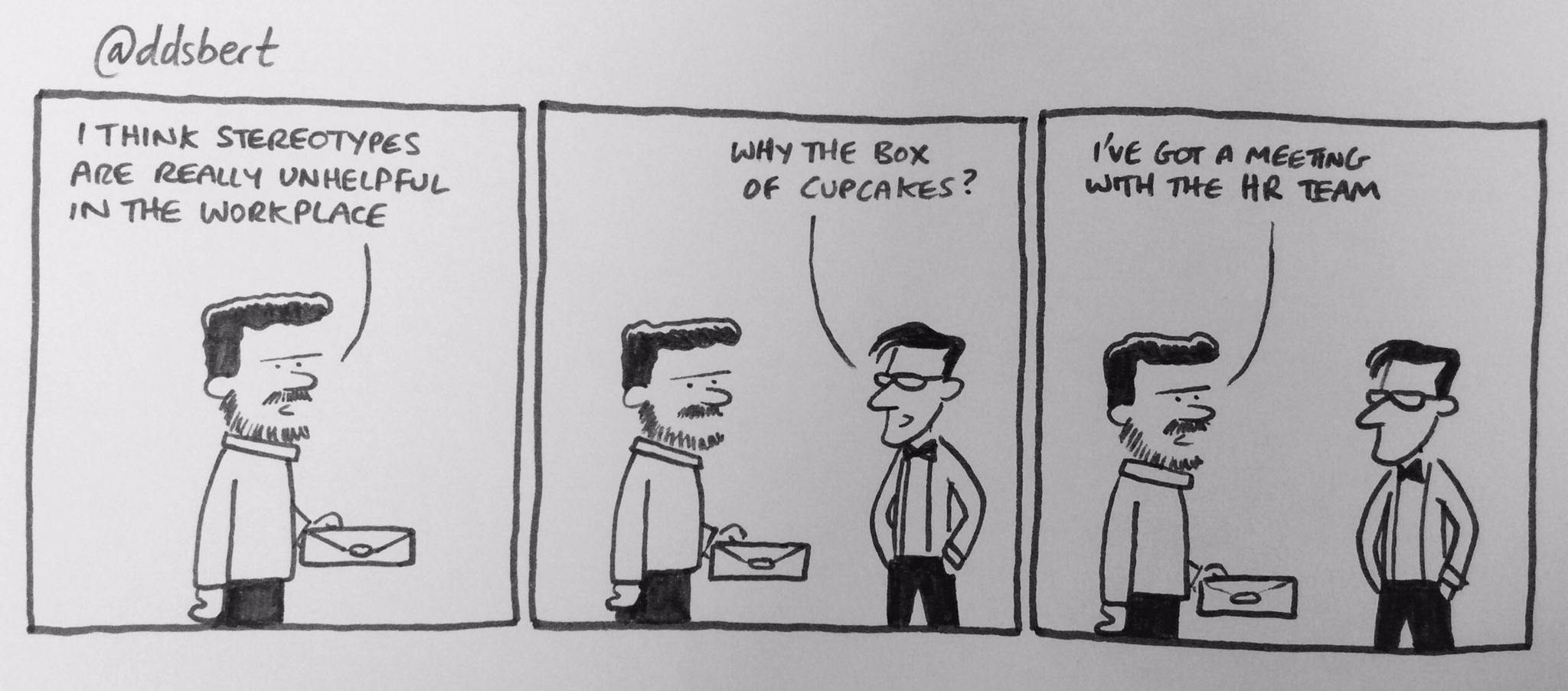Over the past couple of years I became a thought leader. It’s scary stuff because you don’t really get to opt out in the way you might think. Last week I received a book from someone I have never spoken to and the letter inside read ‘Dear Thought Leader’. Apparently you are appointed to that status with scant regard to your intent.
I speak a lot about the future of work and what worries me is that when I do so I explicitly start by saying the following
- I’m not a thought leader
- I’m not a futuristorologister (or any variant)
- I’m a person armed with what I think are some useful questions for people to ponder
- I’m probably going to be wrong about stuff
- I want people to do their own research and thinking

Despite my entreaties it seems my sheer presence and charisma can be distracting to people and they listen to me like I know stuff. If I’d ironed my shirt in the picture above I could quite plausibly be someone who knows something.
It worries me because if you are listening to me when I’m specifically telling you that I don’t have the answers then I’m really worried about what you do when someone convincing and confident bounds around a stage telling you ‘the one thing you need to know about x’.
So here are some tips on how to listen to conference speakers
- Reflect on why they are on stage in the first place. Are they there to sell you a book or product? Do they want to be consultancy solution to the problem they are telling you they have? Were they booked for expertise or bums on seats?
- Watch out for humour. I use it a lot to engage people but it can also disarm people and if you don’t have some mental defences up then nonsense can enter your head unchallenged. I probably cause that unthinkingly
- Think about what the person is trying to get you to think. Are they taking you down a sneaky road to one inescapable conclusion – or is there really a rich exploration of the subject matter. Do they give options?
- DYOR – do your own research. I see alleged top level speakers passing off urban legends as research
- Separate anecdote and data
- If they ask you to commit ‘to do one thing to do when you get back to your workplace’ then commit to doing more background reading on the subject that includes diverse viewpoints and counter arguments
- If you think ‘that’s an amazing stat’ check the source before you base anything on it
Now you don’t have to listen to my advice above, but have a think on it…
Also some tricks of the trade to look out for
- Speaker says ‘We all know this, right?’ and you feel obligated to agree and they then get to base the rest of what they do on that agreement
- A large portion of the speech given to one inspiring story that isn’t necessarily translatable to other situations
- Confidently talking about the realities of leading teams/being part of a culture when it has been a decade since they had to deal with the reality of it…
- People assuming context skip is possible (this worked when I came 9th in the Olympics so your Board should work that way too)
- Big headline figures in large type flashed up behind the speaker
- Any speaker who won’t leave time for a Q&A or only replies to questions with answers from their book rather than reflecting on the question
- ‘Research shows’,’We all know’, ‘We know from science’…
- ‘I spent some time with SexyMegaCorp’ and I’m dropping that name as I know you’ll be impressed, feel you are in the presence of a higher being and turn off your brain and defer to me.


Inspiring stuff as ever. I’m totally going to do all of this without thinking about any of it. Oh no, hang on.
And ironing is so last century.
I recently saw a speaker and I asked whether one of his graphs was the output of research or his own observations of individual’s he’d worked with. He replied that the slide had been put together by someone who isn’t as rigid as referencing as he is, but it was definitely from research by a university, though he didn’t know which. But it was definitely correct and they’d used that slide for the last 20 years.
So, in all that time he hadn’t bothered to try to find the source, nor any updated information that either proved or disproved the original possibly or possibly not proven data that he was giving out as absolute fact.
I agree with you about doing your own research, but I did think about whether I felt that was the right thing to do or not before agreeing with you 😉
LikeLike
Reblogged this on FJWilson Talent Services and commented:
Anthony Haynes writes: On this blog we have published guidance on how to give presentations. See, for example, ‘How to give a presentation’. The following post, reblogged from David D’Zousa’s pleasantly quirky blog ‘101 half-connected things’, looks at the other side of the coin — that is, it looks at presentations form the perspective of the audience. We like the originality of the post and also many of the specific insights.
LikeLike
Couldn’t agree more. I’ve seen someone talk a couple of times about neuroscience with no references to any research. This person then moves on to talk about “heart intelligence” again, with no reference to any research. I’m looking round the room and seeing people going “Oooh, this is amazing” and wondering what sort of parallel universe I’ve found myself in.
“Extraordinary claims require extraordinary evidence” – Dawkins
“That which is asserted without evidence can be dismissed without evidence” – Hitchens
LikeLike
You are in the right universe…
LikeLike